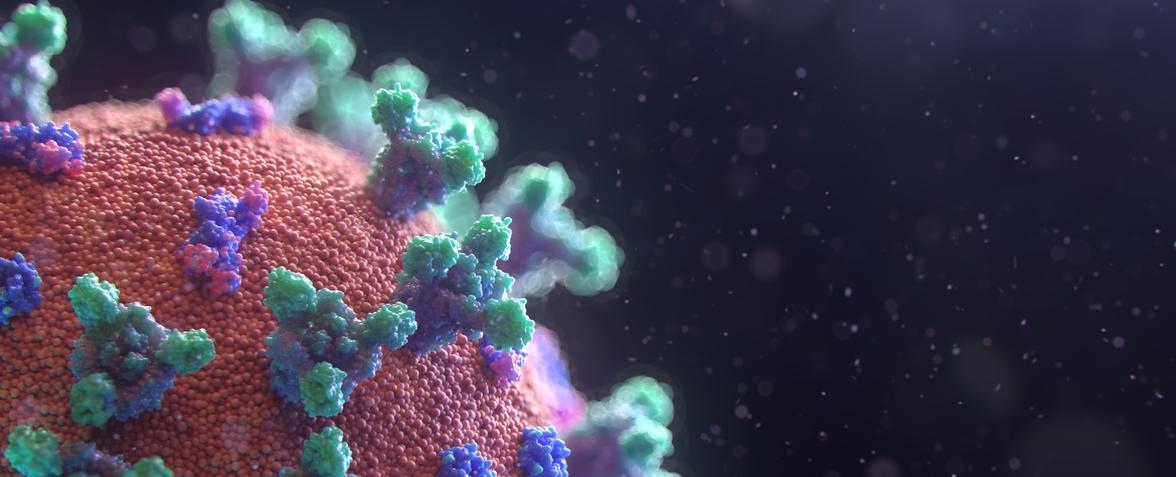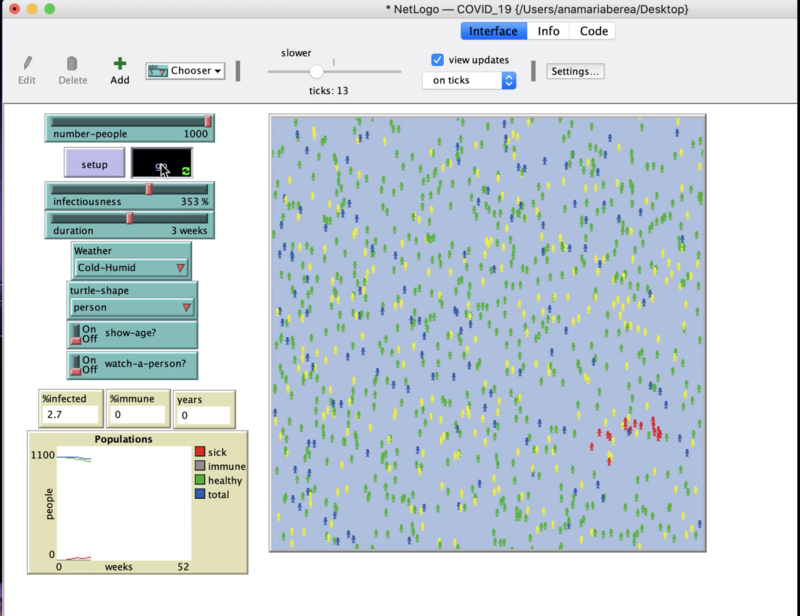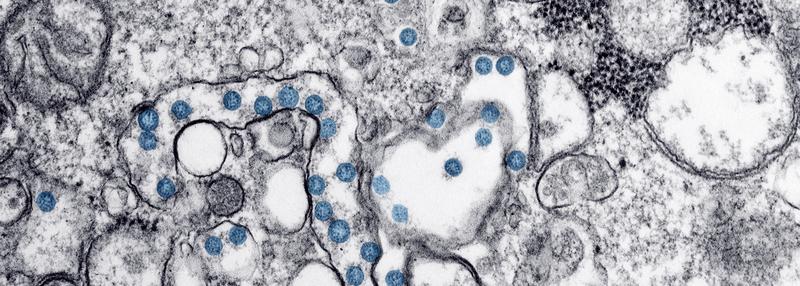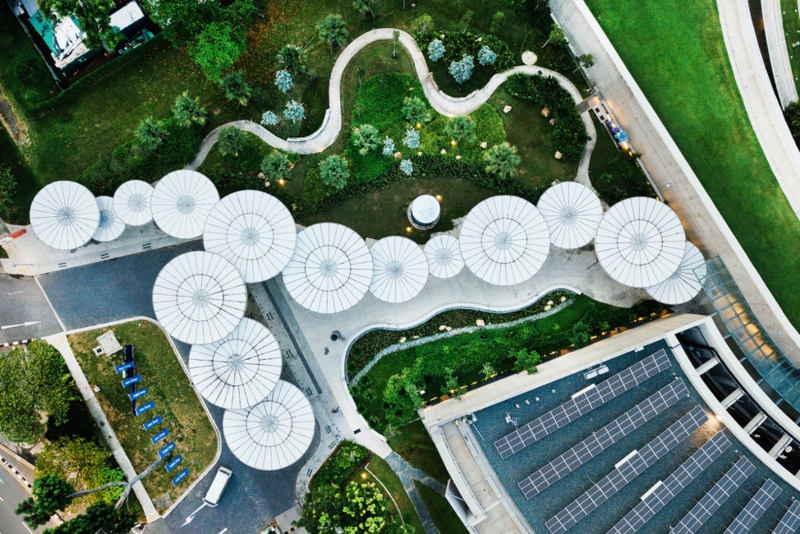
- [] /
- 16 Mar 2020
- Complex Systems Agent-Based Modeling Epidemiology Public Health
March 2020 Complexity Explorer Newsletter
Hello fellow Complexity Explorers, I hope this email finds you well in these uncertain times. As COVID-19 is top of mind around the globe right now, epidemiologists and scientists are working tirelessly to address the pandemic. SFI external faculty are doing some incredible work on the topic as well.
We talked with Complexity Explorer's Agent Based Modeling instructor, Anamaria Berea, PhD, who is an Associate Term Professor in Computational and Data Sciences at George Mason University, about the modeling she is currently working on.
View the Model: http://modelingcommons.org/browse/one_model/6227#model_tabs_browse_info

From Anamaria:
At George Mason University, we built during the past few days a preliminary agent-based model of COVID-19 spread. We are updating the version of the model here regularly.
This model is built upon a general spatial model of virus spread, where agents can get infected by being in touch with each other, with a certain probability. This probability is reflected in the "infectiousness" parameter and can be adjusted by the user of the model. We refined this model by tracking the age of each agent in the population and adjusting the chances of recovery based on agent's age (using current COVID-19 data).
We are tracking children with the blue color and the elderly with the yellow color, while the other agents are green if healthy, gray if recovered and potentially immunized, and red if infected. We also included rough climate and humidity exogenous parameters, and adjusted the rate of infectiousness based on this (currently not informed by COVID-19 data). The chances of recovery and infectiousness rates are informed by the COVID-19 data as well, globally, while the birth rates and lifespan of the population are informed by the worldwide real data.
The model can be initialized with any number of agents up to 1000 and, this being a spatial model, we observed that the higher the population density, the longer it takes for the epidemic to die out. We also observed that the number of agents that recover from the infection dips faster but also increases faster in warmer climates, while it deeps slower and increases slower in colder climates. This is ongoing work and we are still to run full parameter sweeps to test for the statistical significance of results. We also plan to include GIS features to the model, so that we allow for realistic spatial definition for the movement of the agents.
You can view and interact with the model here: http://modelingcommons.org/browse/one_model/6227#model_tabs_browse_info

If you are interested, here is some other work some of our external faculty has been working on related to the virus:
SFI External Faculty Caroline Buckee and Marc Lipsitch are co-authors on this research paper:
https://www.medrxiv.org/content/10.1101/2020.02.04.20020495v2
Marc Lipsitch is viewed as an authority on COVID-19 spread at the moment and has been quoted in several articles:
https://www.theatlantic.com/health/archive/2020/02/covid-vaccine/607000/
https://www.medrxiv.org/content/10.1101/2020.02.13.20022707v2
https://www.medrxiv.org/content/10.1101/2020.03.04.20031112v1
Lauren Ancel Meyers has also co-authored papers on the subject:
https://www.medrxiv.org/content/10.1101/2020.02.19.20025452v2
https://www.medrxiv.org/content/10.1101/2020.01.28.20019299v4
Have you visited Complexity Explorer lately?
Now is a great time to learn something new, and unlike in the past all of our available courses are currently open for rolling enrollments. Take a moment to browse our free courses and tutorials, and if there was one that you particularly enjoyed – consider recommending it to a friend.
https://www.complexityexplorer.org/courses
Global Sustainability Summer School
We are still accepting applications until April 1st!
Presented by: the Santa Fe Institute and University of Chicago Mansueto Institute for Urban Innovation
July 27 - August 7, 2020 in Santa Fe, NM
For more information and to apply: https://santafe.edu/engage/learn/schools/global-sustainability-summer-school

Community Matters
Do you follow us on Facebook? The Complexity Explorers community is a vibrant group, and we would love to have you!
